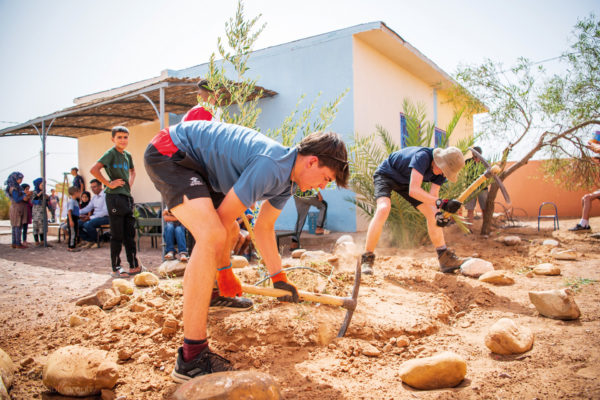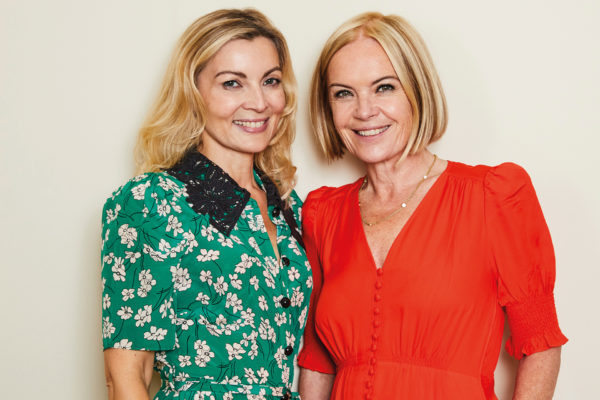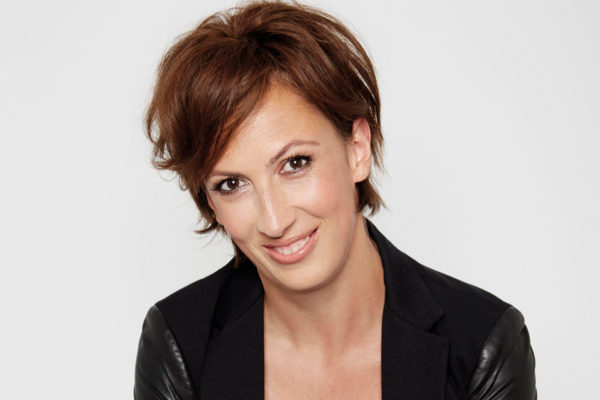
A Look At Ludgrove
By
6 months ago
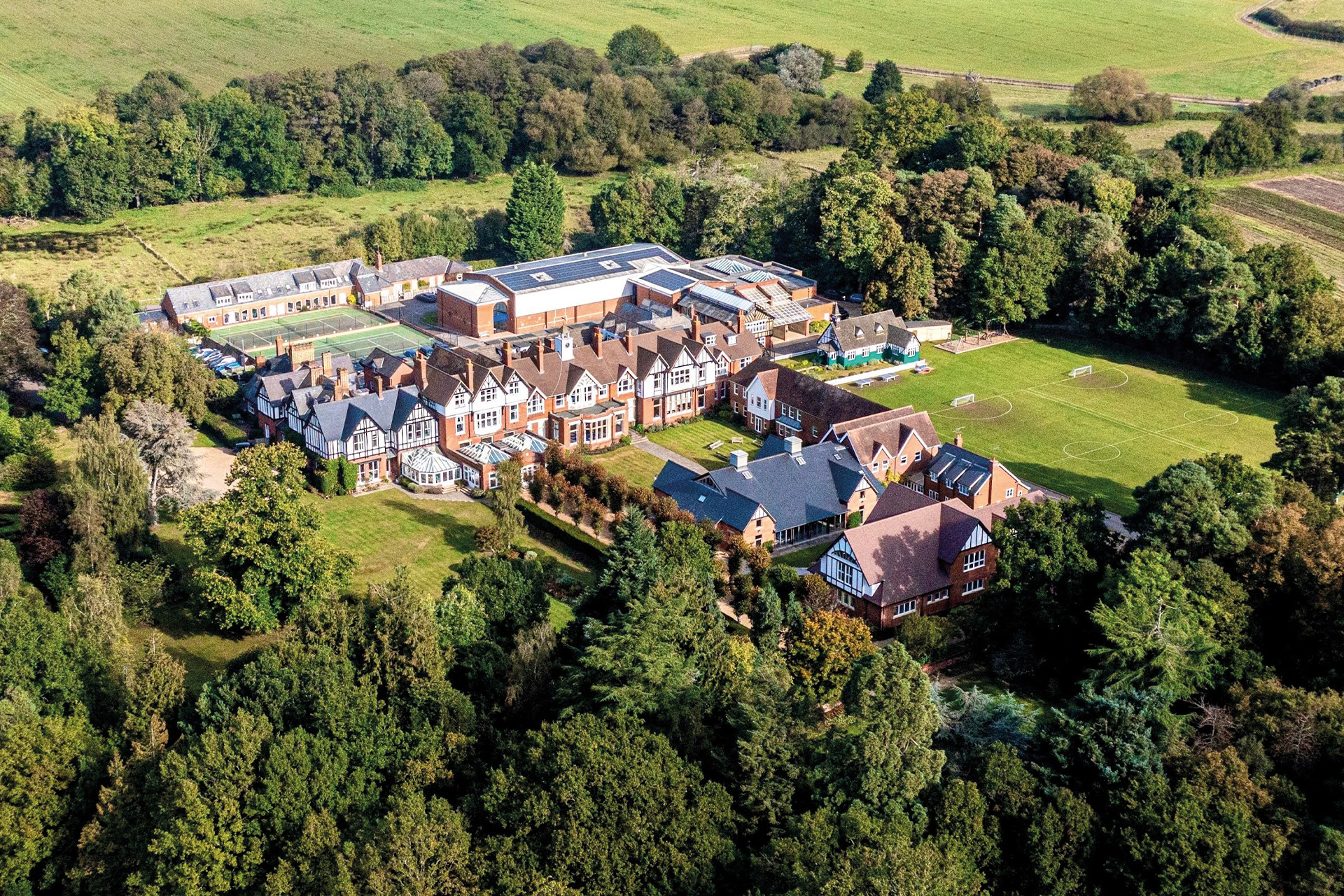
Eleanor Doughty reveals why Ludgrove School is perfectly unique
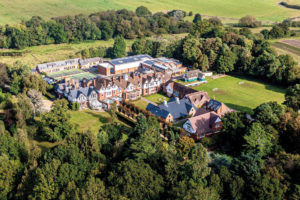
Ludgrove School
A well-mannered scrum has broken out in a corridor at Ludgrove, just outside Wokingham in Berkshire. It’s fruit break time, and a laden trolley is coming through. Boys aged between 8 and 13 run and jump in puddles outside, playing together much as they would do at home on a rainy day. The only difference here is that they are dressed in Ludgrove’s traditional uniform: blue cords, a checked shirt and tie, and a v-necked jumper (the colour a matter of their own choice from blue, light blue, green and claret). It is clear to see why the inspectors from 2022’s ISI inspection wrote in their report: ‘Pupils are not just physically healthy; they radiate cheerfulness and care for each other.’
Who’s there?
Ludgrove is the last all-boys, all-boarding prep school. The headmaster Simon Barber and his wife, Sophie, head of pastoral care, use the phrase ‘fortnightly boarding’, since there is an exeat every other weekend. Most of the 186 boys join at eight, and ‘the majority of parents have come on a personal recommendation,’ says Sophie. Parents come twice-weekly for matches, as well as for concerts; there is no PTA.
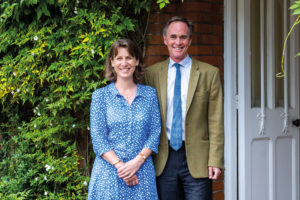
Simon Barber and his wife, Sophie
What are they learning?
Average class sizes are 12, and the boys’ timetable includes the usual subjects, with Latin introduced in year 5. In CDT, year 8s make tuck boxes to take to senior school, a north-facing art room has been designed to get the right light, and the ceramics studio has two kilns. About 80 percent of boys learn a musical instrument.
What about extra-curricular?
Thursday afternoons are dedicated to activities, and boys have a huge choice, from chess to outdoor skills, metal detecting to the Ubuntu Club. There are no pupil pets but plenty of dogs on site, including the Barbers’ Labrador. Boys are divided into ‘sets’ – Ludgrove’s name for houses – and play inter-set competitions as well as ‘sets football’, in which the 30-boy set plays football against another set, with three footballs and three referees. There is no personal technology in school; to call home, boys can go into an old red phone-box, a donation from leavers. On Sundays, they don their tweed jackets – which can be any tweed – for chapel. Afterwards they enjoy a roast lunch, before returning to more activities, from skateboarding, playing in the cricket nets to golf, or ‘Cosy Cafe’ in the chapel, where they can go to have hot chocolate. Trips are frequent, and guest speakers often come in to talk to the boys or put on workshops.
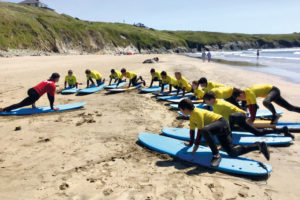
Pupils having a surfing lesson
Where do they sleep and what’s there to eat?
Boys sleep in single beds or bunkbeds in dorms above the main school and rotate every term, boarding by year group. An older boy lives in as dorm monitor and dorm cricket is played. Ms Knowles operates a teddy bear hospital, if someone needs repairing. All three meals are eaten in the dining hall, below names on the wall of every Ludgrovian since the school’s foundation in 1892. Food is served family-style, with a member of staff at each table; meat is supplied by a local butcher, and fruit and vegetables from a local greengrocers. Boys express their opinions via the food committee.
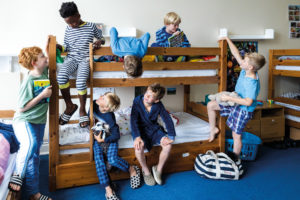
Boys in their dorms
Who’s in charge?
Old Etonian Simon Barber is the third generation of his family to lead Ludgrove, after his father Gerald and grandfather Alan, the school is run as a Charitable Trust. The Barbers’ Ludgrove is as close to home as school can get; on Sunday nights, year 4s have story time in their pyjamas with Sophie Barber, and when it’s a boy’s birthday, he has an ice-cream cake. Painted on a wall is a letter sent by Alan Barber to his son who was going to Eton – ‘a few things to remember: always speak the truth, stick up for yourself, never do anything that you would be ashamed to tell mum or myself’. There are six matrons, and Alison Bridge, in charge of the year 4s, has worked at Ludgrove for 30 years, famous for her ‘Ma’am’s Jam’. Tory and Jon Pinchin-Hughes make it a home-away-from-home upstairs with TV nights and bedtime stories, and host a sweet shop, ‘Pinchin’ Mix’, on Sunday afternoons.
Who gets in?
Ludgrove takes 30 boys in year 4, with an entrance exam for year 5 upwards. Fees, as of September 2023, are £11,100 per team, and the school offers a range of transformational bursaries up to 110 percent, in conjunction with the Royal National Children’s SpringBoard Foundation. Boys’ names can be put down at birth – but, says Sophie Barber, if a family inquires before then, they are gently directed to get back in touch after their son’s arrival.
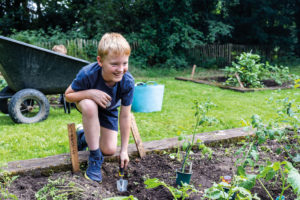
Gardening Club
Famous alumni?
The Prince of Wales is one of Ludgrove’s most famous recent old boys, along with the adventurer Bear Grylls, the flamboyant late Marquess of Bath, and the former prime minister Alec Douglas-Home.
Where next?
About 60-65 percent go on to Eton, Harrow or Radley. Parents will tell the Barbers if they have a school in mind, but thanks to testing, expectations are ‘easier to manage now than 20 years ago,’ says Simon Barber.
Don’t forget…
Year groups at Ludgrove have their own special names: year 4s are ‘sixes’, year 5s are ‘fours’, year 6s are ‘threes’, and year 7s are ‘twos’. There are no ‘fives’, as this might get confused with the sport. ludgrove.net




